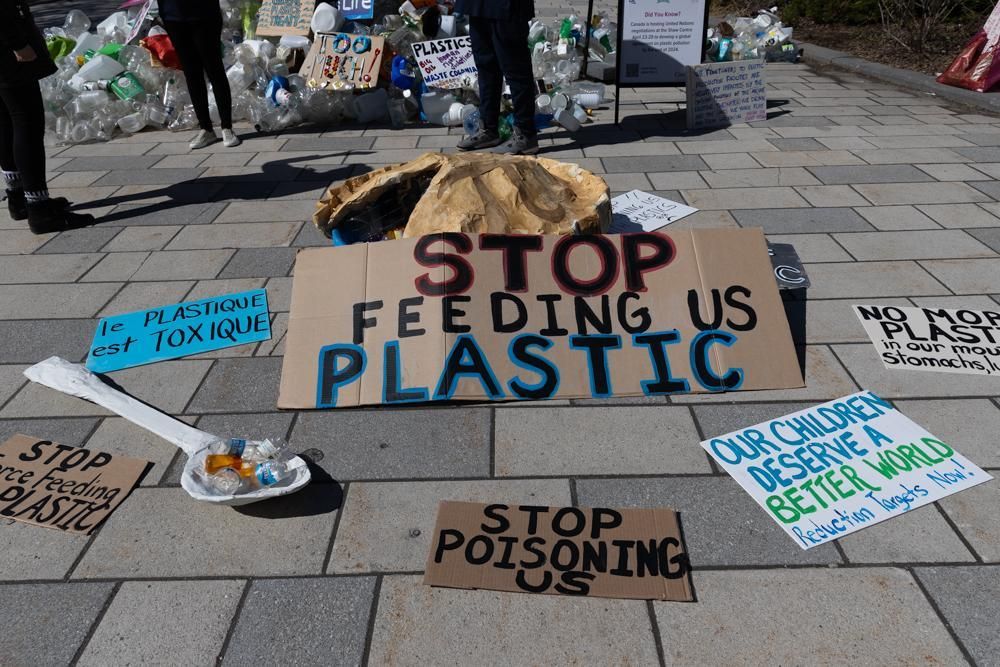Final Round of Negotiations on Global Plastic Treaty Begins in South Korea
Busan, South Korea – 25 November 2024 – After the 4th meeting (INC-4) held in Ottawa, Canada, delegates and observers have gathered again in South Korea for the final round of negotiations on the Global Plastic Treaty (INC-5).
This pivotal session will take place from November 25 to December 1, 2024, aiming at the development of a legally binding instrument on plastic pollution, including its impact on the marine environment. Also CCB, along with other civil society organizations from across the globe – such as its Member Organization the Swedish Society for Nature Conservation - are actively engaged in these negotiations.
In her opening statement,
UNEP Executive Director Inger Andersen, remarked:
“Today marks one thousand days since the historic UNEA resolution greenlighting these negotiations. While some multilateral agreements have taken decades to finalize, this represents good progress. However, plastic pollution operates on a different timescale. Some plastics take up to one thousand years to decompose. Even then, they break down into smaller particles that persist, pervade, and pollute.
This pollution harms the natural systems and species we rely on, hampers our ability to adapt to climate change, damages ecosystem resilience, and blocks drainage systems in cities. It very likely also harms human health. Furthermore, the continued growth of plastic production emits greenhouse gases, pushing us closer to climate disaster.”

Eugeniy Lobanov, CCB Hazardous Substances Working Area Leader, emphasizes the critical moment the negotiation process is currently living:
“We are at a crucial juncture, with sharp differences in interests among groups of Member States. It is imperative to craft a Treaty that addresses the full life cycle of plastics, including upstream activities such as production and content regulation. Managing plastic waste alone will never suffice.
Another vital element is the inclusion of health provisions in the treaty. The INC must retain references to protecting human health and the environment, maintaining the objective of safeguarding both through this instrument.”
Campaigners, businesses, and members of the High Ambition Coalition—an alliance comprising EU member states and southern hemisphere nations where much of the world’s waste is dumped or incinerated—support production limits as the most effective way to curb plastic waste and encourage recycling.
The EU’s Role in Tackling Plastic Waste
In the European Union, upcoming regulations aim to shift the responsibility for managing plastic and other packaging waste onto the companies that produce it.
The revised Packaging and Packaging Waste Directive, an update to a 1994 EU Regulation, is expected to come into force next year. Under this directive, every EU country will be required to implement Extended Producer Responsibility (EPR) schemes to achieve a 5% reduction in waste by 2030 and a 15% reduction by 2040.
Lawmakers have also agreed to make all packaging reusable or recyclable by 2030 and to ban certain single-use packaging items, such as lightweight plastic bags and condiment sachets, by the same deadline.
Progress in Negotiations
Since its inception in 2022, the INC has convened four times (INC-1, INC-2, INC-3, and INC-4), overcoming initial procedural challenges and advancing to text-based negotiations based on a draft compilation of the future treaty.
During INC-5, the Committee is expected to divide into four contact groups to address key issues:
- Plastic Products and Production: Including chemicals of concern, product design, and supply chain aspects.
- Plastic Waste Management: Covering emissions, releases, existing pollution (including in marine environments), and just transitions.
- Finance and International Cooperation: Establishing financial mechanisms, capacity building, technical assistance, technology transfer, and cooperative efforts.
- Implementation and Compliance: Addressing national plans, reporting, monitoring progress, evaluating effectiveness, sharing information, and raising awareness through education and research.
-END
***
Article written by Eugeniy Lobanov, CCB Hazardous Substances Working Area Leader
Further Information
- UNEP Intergovernmental Negotiating Committee on Plastic Pollution – 5th Session
- Daily coverage of INC-5 from IISD: Earth Negotiations Bulletin

